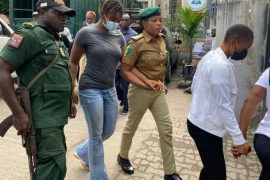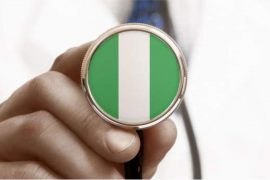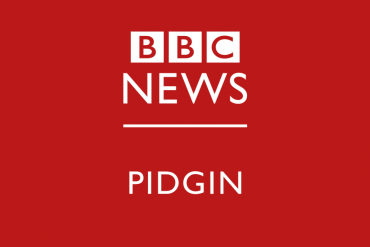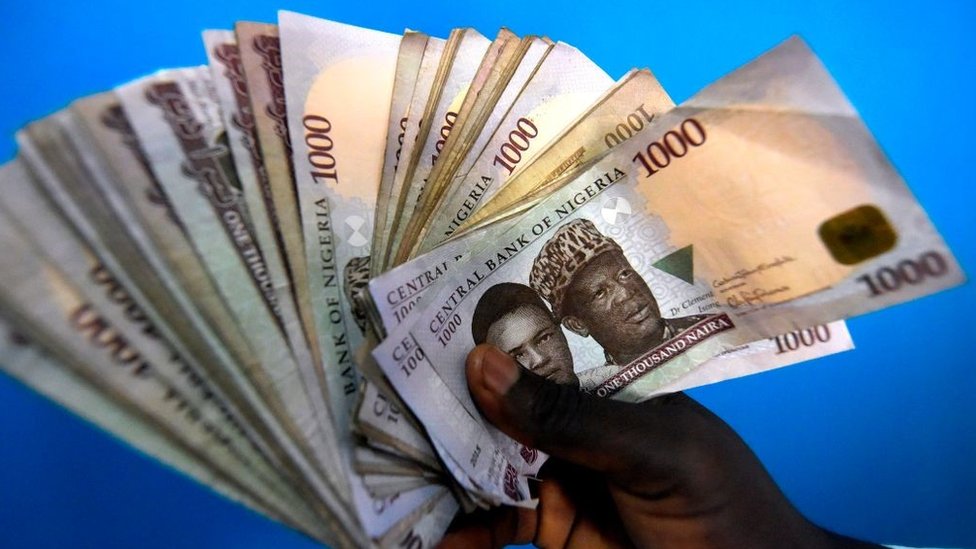
One BBC investigation discover say political parties for Nigeria dey secretly pay social media influencers to spread disinformation about dia opponents ahead of di kontri general elections for February.
BBC Global Disinformation Team speak to whistle-blowers wey dey work for two of Nigeria political parties, and prominent influencers wey describe am as “industry”.
Di whistle-blowers say parties dey give cash, ogbonge gifts, goment contracts and even political appointments for dia work.
We change dia names to protect dia identity. “Yemi” na prominent strategist and “Godiya” na politician.
“We don pay one influencer up to 20m naira ($45,000) for delivering result. We don also give pipo gifts. Oda pipo prefer to hear: ‘Wetin you wan do for goment, be board member, be special assistant?’,” Godiya say.
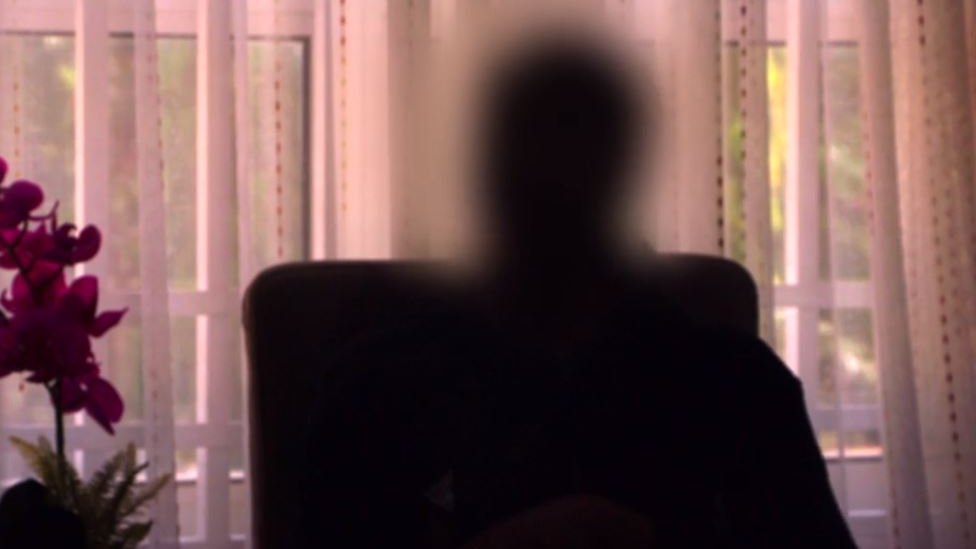
Situation rooms na common tin as elections dey near. Dat na wia political parties dey strategize, develop plans and monitor dia campaign success.
But for dis rooms wey whistle-blowers describe give us, e get anoda function: following how false stories wey dem assign to influencers dey perform.
Strategist Yemi say dem dey develop fake stories to improve dia candidates chances: “You fit deliberately misinform as e sweet you.”
BBC speak to multiple influencers wey confam say payment in exchange for false political posts dey common.
One influencer wey ask make we no call im name – with almost 150,000 Facebook followers – tell us say political parties dey pay am to post completely false stories about political opponents.
- Eight tins to know as 2023 election campaigns officially beginhttps—www.bbc.com › pidgin › articles
- Key tins INEC chairman tok for Chattam House about Nigeria 2023 elections
- APC youth wing don get militia group-
- Lagos remain state wit highest number of registered voters, Kano follow and oda tins INEC tok
Im say im no dey do am koro koro but im go codedly plant fake stories through oda smaller influencers wey im go hire.
Separately, Rabi’u Biyora na major influencer wey dem sabi for supporting di ruling All Progressives Congress (APC) party.
E tell us say one opposition party try to “woo am” to stop promoting di APC candidate, and give im support to dia candidate instead.
Posts for im Facebook timeline confam wetin im tok. Im tell us say im no collect gifts or anytin like dat.
But we discover one Facebook post from 2019 wia im say im bin receive car and money from one party in exchange for im support on social media.
We ask am dis question, but im stop to dey respond to us.
Tactics
Wit about 80 million Nigerians online, social media dey play big role for national debates about politics.
Our investigation reveal say dem dey use different tactics to reach more pipo on Twitter.
Many dey play on issues wey dey cause division like religious, ethnic and regional differences.
For July, influencers bin widely share posts wey associate Kashim Shettima, APC vice presidential candidate wit members of di Islamist militant group Boko Haram.
Dis story gain momentum on Twitter and dem share am thousands of times, so tey e enta WhatsApp and oda platforms.
Using reverse image search, we find out say pipo wey bin dey inside di foto wit Shettima na nomadic Fulani parents wey dia pikin register for schools for 2017, not members of Boko Haram.
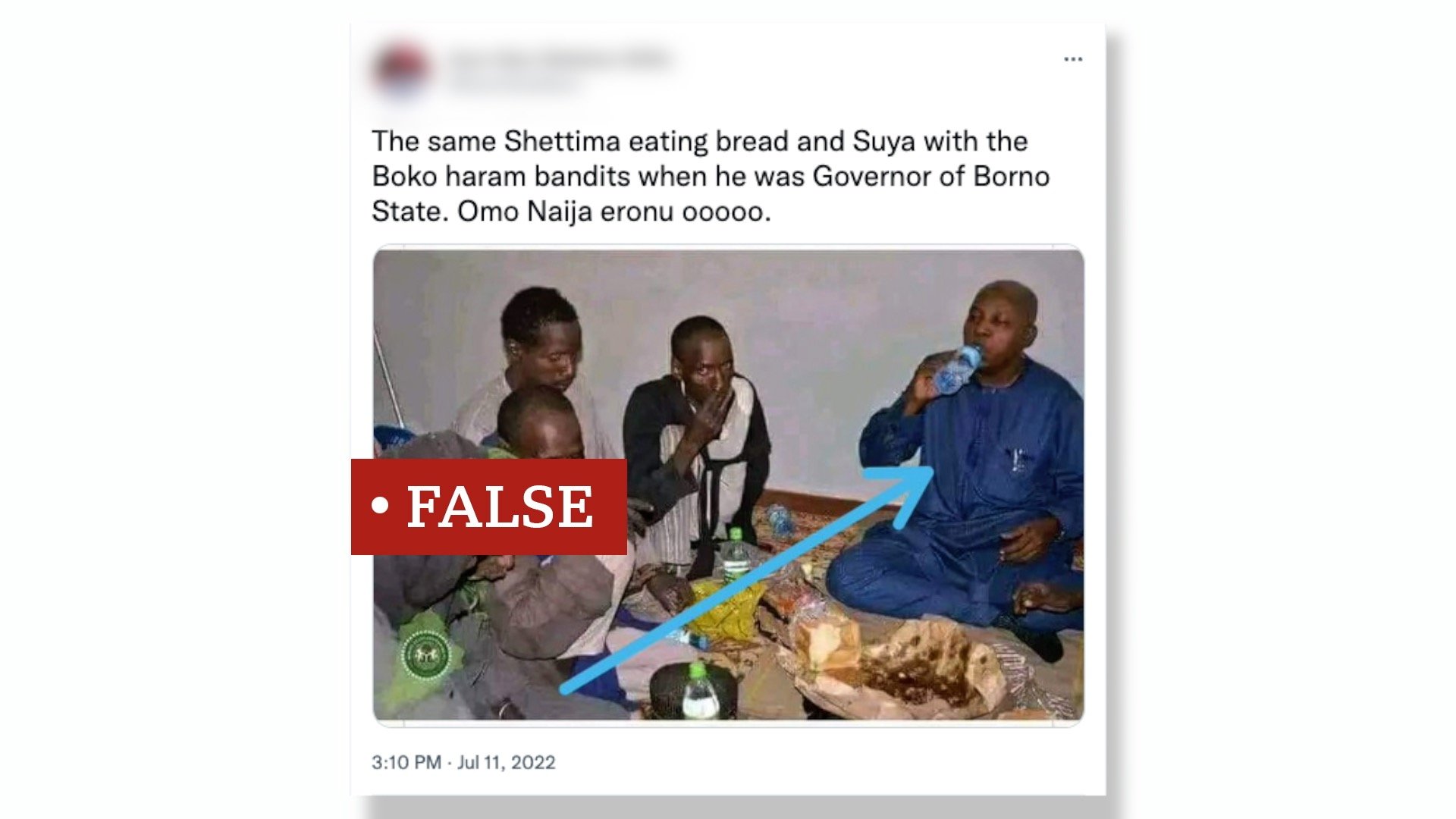
One month later, influencers promote claim witout evidence say Labour Party presidential candidate Peter Obi dey linked to, and dey follow orders from, Indigenous People of Biafra (Ipob) – one separatist movement wey Nigeria goment proscribe as terror group. Im party deny dis.
Pipo wey share dis informate include Reno Omokri – special assistant to former opposition President Goodluck Jonathan – wey get more dan two million followers on Twitter.
Wen we approach am for comment, Reno Omokri say im standby im accusation, but say di main opposition party, People’s Democratic Party (PDP) no pay am to campaign on dia behalf.
Meanwhile, false tori say di PDP presidential candidate, Atiku Abubakar, fall sick and dem rush am out of di kontri bin get many share for Twitter.
Godiya, di politian wey we interview, say political parties tell influencers to provoke as much emotion as dem fit wit dia paid posts.
“We use foto dem wey fit no even dey relevant to di tori wey we dey try sell. We fit take pictures from East Africa warzones of di 1990s and attach dem to tweet about how dem dey kill pipo of my ethnic group. Wen pipo become emotional dem go retweet, dem go like, and e go get power,” she tok.
According to di whistle-blowers, sometimes dem dey give di hired influencers di wey dem go frame dia own words. Oda times, dem dey give dem actual tweets wey dem suppose publish at specific times.
Dem say dem dey pay influencers based on di number of followers wey dem get.
Dem also say payment dey mostly happun in cash to avoid evidence.
Moral compass
E no dey illegal for political parties to hire social media influencers for Nigeria, but spreading disinformation on social media dey against di kontri laws and Twitter policy.
BBC don ask Nigeria main political parties, APC, PDP, and Labour Party, about di whistle-blowers’ allegations. Dem no reply to our request for comment.
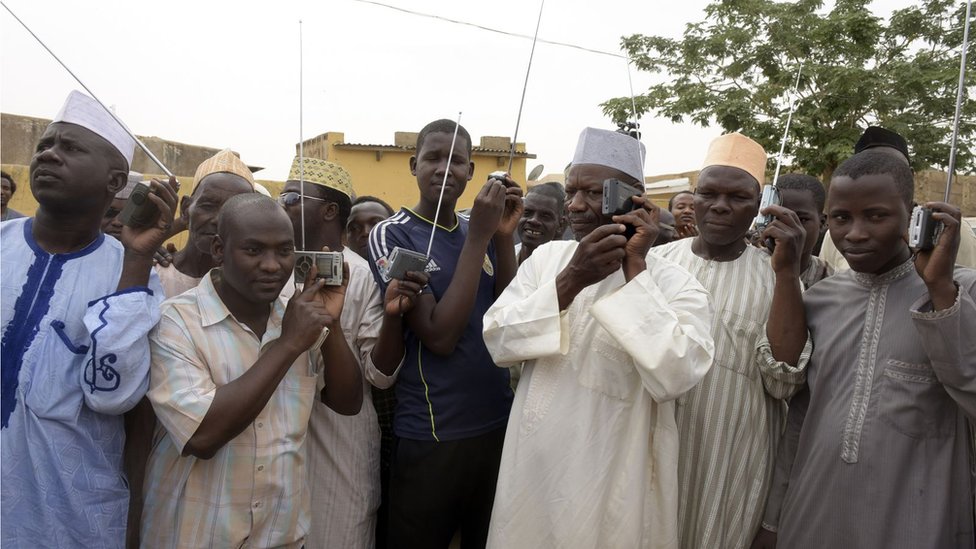
In response to our findings, Twitter don take down some of di accounts wey we bin report to dem and say e get responsibility to protect electoral conversations from interference, manipulation, and false information.
However, e get worries about di platform capacity to tackle misinformation for Africa afta Elon Musk takeover of di company, wen im close di continental headquarters for Ghana.
BBC reach out to Twitter again afta dis changes, but no receive response.
Idayat Hassan, director for di Centre for Democracy and Development, say di activities of dis influencers amount to “political interference”.
“E dey undermine democracy, undermine trust in di electoral system, and e dey instigate conflict,” she say.
But politician Godiya see am in a different way, and defend di tactic: “Na game. Somebody get to win, and God help me, I no go belong to di losing side.”

- VOTERS ROLL: Digital detectives uncover child voters in Nigeria
- PETER OBI: The frugal businessman capturing young Nigerian hearts
- ATIKU ABUBAKAR: The man who wants Nigerians to look back to go forward
- BOLA TINUBU: Lagos ‘godfather’ sets sights on conquering Nigeria
- FULL COVERAGE: Nigeria Elections 2023




